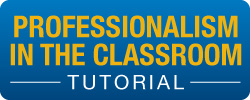All prospective students must
apply for admission to West Virginia University in addition to completing application information for the
College of Business and Economics.
- Student Life at WVU
- WVU Office of Admissions
- Housing
- WVU Honors College
- Pay for College
- Freshmen Scholarships
- Transfer students
- Adventure WV
Emphasis on Ethics
The Top Ten Factors Behind the West Virginia University College of Business & Economics' Emphasis on Business Ethics
It can be said there are ten factors behind the West Virginia University College of Business & Economics' emphasis on business ethics. I will rank them in terms of the influence I see each as having on the student body, holding those I feel of utmost importance until last. I will first note that the Masters in Industrial Relations program (MSIR) has many of its students in the College's Society for Human Resource Management Chapter (SHRM Student Chapter 5127). This chapter is characterized by its emphasis on ethics & corporate responsibility.
Paralleling this, the Masters in Finance Program places a strong emphasis on the professional ethical standards advanced By the Charter Financial Analyst Institute. These standards are captured in two documents: The CFA Handbook and Global Investment Performance Standards (GIPS). These standards are studied in BADM 512, Law Ethics & Diversity. Similarly, the Masters in Business Administration Program offers BADM 644, Business Law & Ethics.
Turning to undergraduate programs, all undergraduates at the College are required to take BCOR 380, Business Ethics. This course is designed to teach students how to blend professional ethics with business ethics; recognize that the code of conduct for one's profession can serve as an excellent ground for one's ethical philosophy; resolve ethical dilemmas; and recognize that ethical values transcend time, culture, and place. Out of this class comes the membership for the College's Business Ethics Club.
The College also has a meaningful Honor & Civility Code. Under the direction of Associate Dean Karen Donovan an online tutorial was also developed for this code. The completion of this tutorial is required in BCOR 199, Introduction to Business.
MANG 480, Corporate Social Responsibility, a course created by Dr. Jerry Blakely and B&E Alum, Mr. Bob Reitman, is a win-win for both students and the local community. For the past 7 years, Dr. Joyce Heames has guided the course as students are given the opportunity to experience the challenges facing an allocation committee for a large corporation. After studying the market and the philosophy behind the art and science of giving, they get a real lesson in the needs of the community and the trials organizations and individuals face in trying to meet those needs.
The College has a faculty dedicated to the advancement of business ethics. Course-embedded ethics is found throughout the curricula and published works on business ethics topics by the faculty are numerous. Additionally, the College's high standards for admission bring to it mature students who are receptive to learning business ethics.
Finally, Dean Sartarelli's leadership in business ethics sustains and encourages all of the aforementioned. Top-down leadership is critical to business ethics. He personally gives the capstone talk to every BCOR 380 Business Ethics class. In every talk to a gathering of students, whether for welcome, graduation, or anything in between, he promotes the College's commitment to integrity. Surrounding him in this leadership can be found the Associate Deans, the Assistant Deans, and the Department Chairs.




